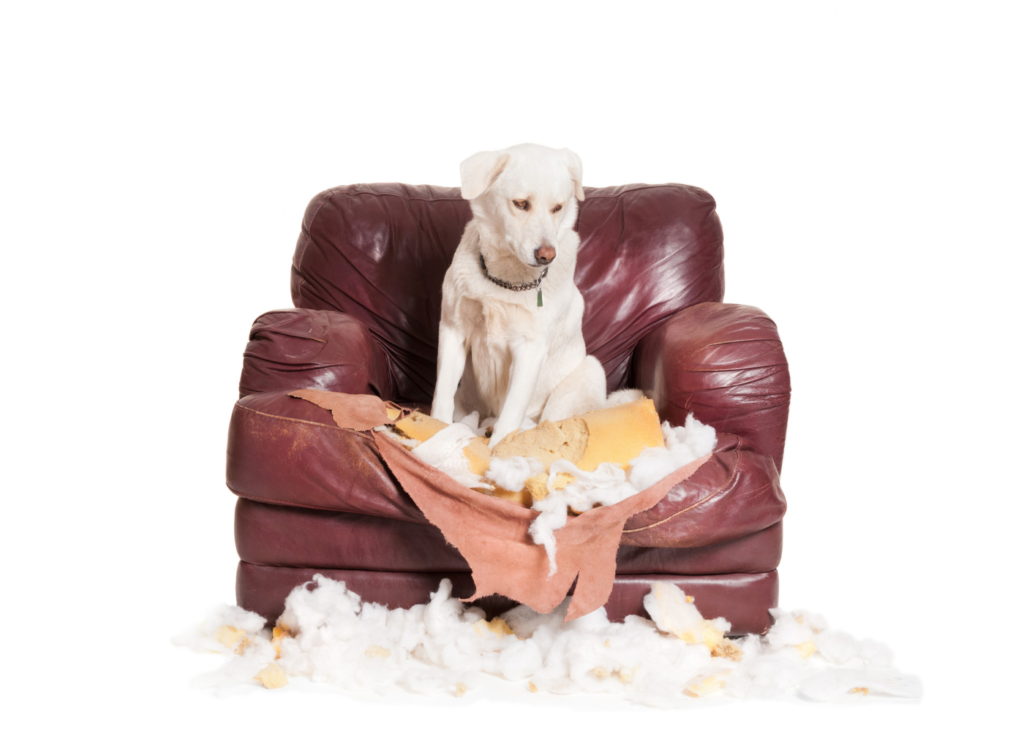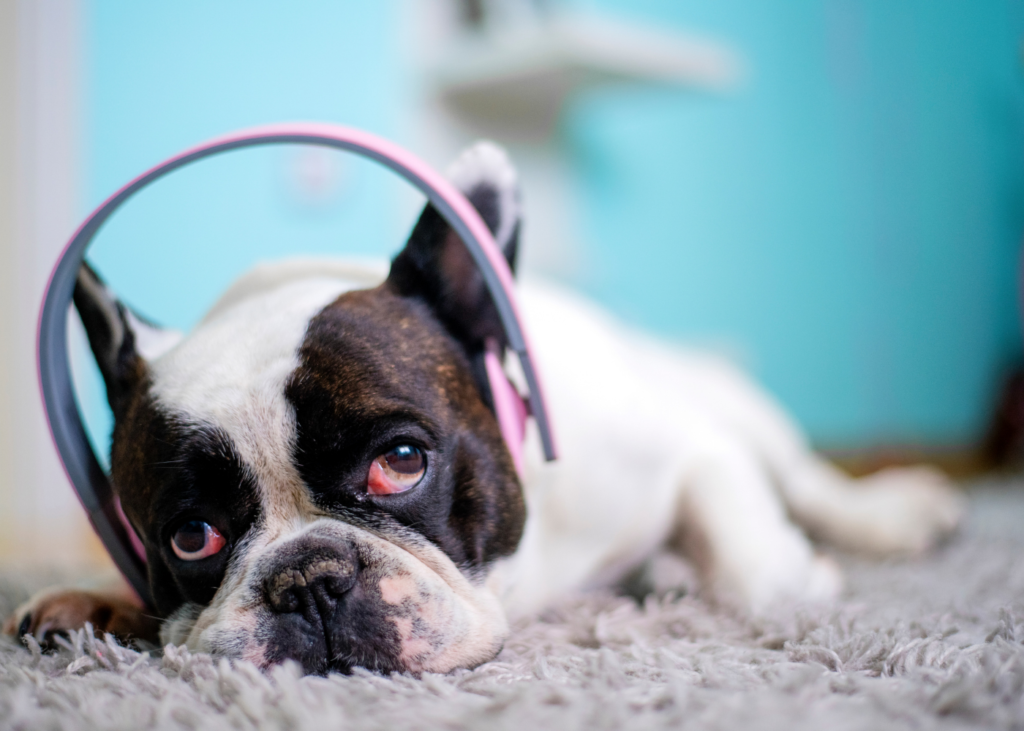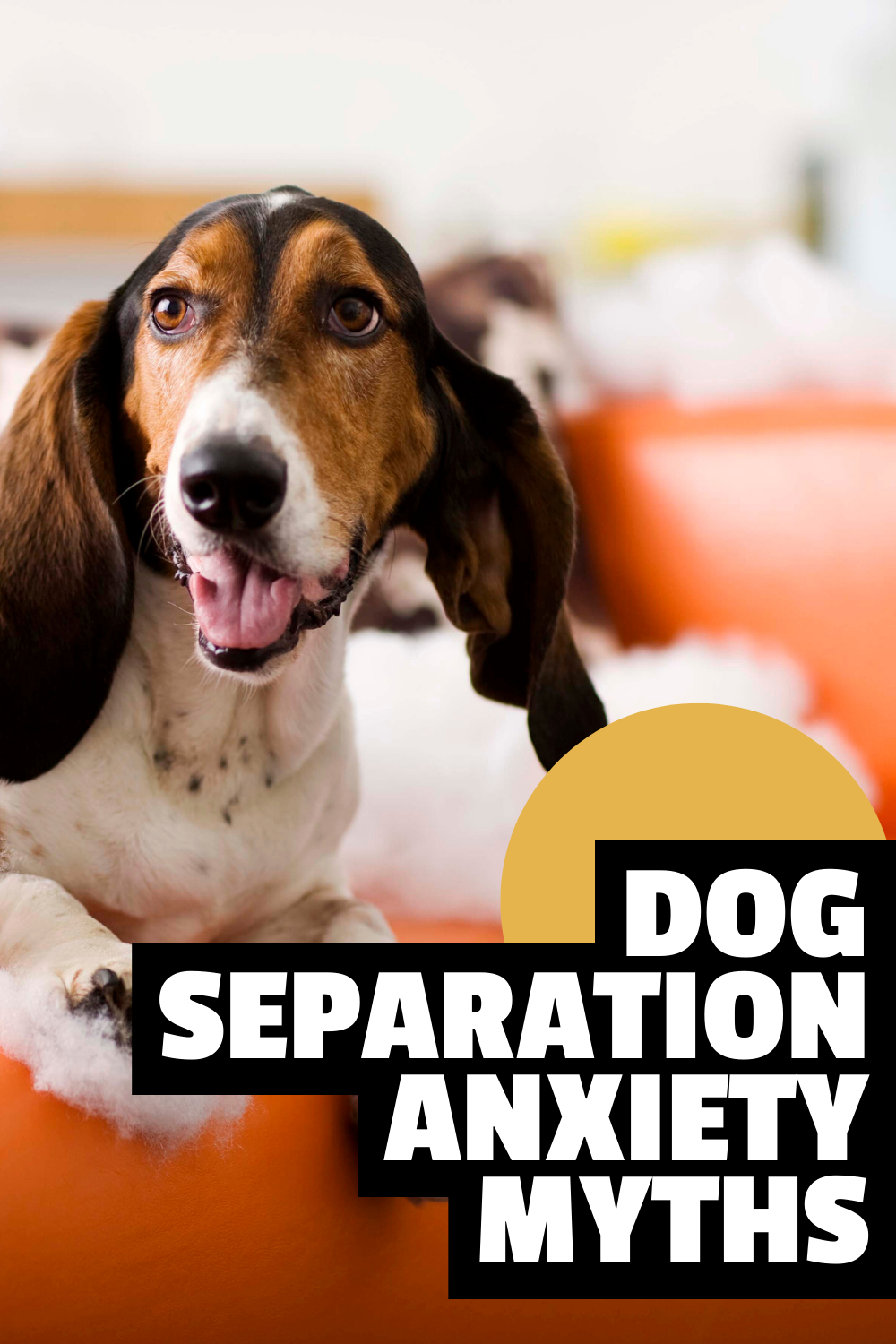Dog separation anxiety is surprisingly prevalent (it’s estimated to affect 14% of dogs, although that number has likely increased with how many people work from home due to the pandemic).
Despite being relatively common, dog separation anxiety remains poorly understood.
Dogs with separation anxiety experience true panic when left alone. This often manifests into undesirable behaviors such as destruction of the house, peeing or pooping indoors (when the dog is otherwise house trained), or excessive barking when alone.
I’m a force-free dog trainer that works with separation anxiety dogs, and my own previous rescue dog suffered from separation anxiety terribly. Separation anxiety is awful for the dog, but I also understand how guilt inducing and stressful it can be for the owner as well!
This article will cover a few of the myths about dog separation that I believe pet parents need to know!

Myth 1: If you don’t scold your dog for what it’s done while you’re away, it won’t learn
I’m putting this myth first because it’s the most important:
YOUR DOG ISN’T “MISBEHAVING” WHILE YOU’RE AWAY OUT OF SPITE!
They aren’t punishing you for leaving. They are not “being bad”.
The dog is experiencing true panic!!
The intense “symptoms” of separation anxiety (such as elimination, destruction, and excessive barking) are often the issue for the human. However, the panic is the problem for the dog!
Let me ask you this. If you’re scared of spiders, and I throw one on your face, do you intentionally mean what happens next? You’ll like run, flail, scream, and maybe cuss. These are involuntary actions brought on by terror! If you break something or say something inappropriate while you’re panicking, those actions aren’t your fault.
It’s the same for your dog! Have empathy for what they do as they panic.
Dogs only have a few second association between things, so getting mad at them for what they did while you were away is not only unfair, but it will not actually “teach” them anything anyways.
Myth 2: More exercise will fix separation anxiety
This one is well-intended, but misguided.
Here’s another example. If you went for an hour jog and felt tired, but I threw that same spider in your face when you got home, do you still have enough energy to panic?? I sure would!
Sufficient exercise is part of responsible dog ownership. It’s important! It will not cure separation anxiety though.

Myth 3: Leaving items that smell like you will fix separation anxiety
This is almost insulting to dogs incredible sense of smell!
Depending on breed, their sense of smell is between 10,000-100,000 times better than ours!
When you leave your dog at home, your entire house smells like you. They don’t need your t-shirt.
Myth 4: You’ll reinforce separation anxiety if you come back inside when they’re “being bad”
I understand the premise of this myth.
In force-free training we often warn against accidentally reinforcing poor behaviour from your dog. An example of this would be with any form of demanding behaviour. If your dog is barking at you for attention and you get frustrated enough and pet them to make it stop, you’ve reinforced that behaviour! Your dog just learned that barking gets them what they want.
It’s no surprise then that people assume the same rule applies to separation anxiety. It doesn’t!
If your dog is barking due to separation anxiety, will you reinforce the barking by coming back inside? Nope! Why?
Your dog is barking from anxiety. You cannot positively reinforce anxiety!
Lets use the spider analogy again. Is there anything positive I can do or say to you to make your fear of spiders worse? No. You cannot positively reinforce fear!
Myth 5: Leaving the tv or music on will help with separation anxiety
Separation anxiety is a fear of being alone.
Your dog knows that the voices they’re hearing on tv are not someone in the room with them. Therefore despite being well-intended, leaving music or tv on will not help with true separation anxiety.
The caveat to this is that many dogs with separation anxiety have noise phobias as well. If there are noises that scare your dog (thunder, construction, traffic, etc) and the music helps provide white noise against that, it CAN help with the noise phobia.
Therefore there’s nothing wrong with leaving music on for your pup, just know that it isn’t going to fix their separation anxiety!

Myth 6: Dogs “grow out of” separation anxiety
As much as this would be wonderful if true, it’s simply not.
Dog separation anxiety is a true clinical panic disorder.
Clinical disorders do not just *poof* and disappear with time. That’s like saying heart disease or diabetes would just disappear with time!
“Curing” separation anxiety requires proper treatment just like any other clinical disorder.
Myth 7: If your dog has separation anxiety, they’ll always have it
Luckily this is untrue.
As mentioned above, it won’t magically happen, but easing separation anxiety is possible with proper desensitization (and often medication).
It does not need to be a lifelong issue!!
Separation anxiety is difficult for both the dog and owner!
I’ve had a dog with extreme separation anxiety. I know the guilt and worry it can cause. I used to stress about leaving for an hour to get groceries! I’ve worked with clients where their big goal was to be able to leave their dog for 5 minutes and grab a coffee.
Dog separation anxiety can make you feel like a prisoner in your home. You’re so worried about what the dog will do to the home or themselves while you’re away that you start to avoid leaving.
Both you and your dog deserve more than that!
If you need help with separation anxiety, I’d love to help. Virtual dog training works beautifully for separation anxiety, so I can help regardless of location! You can contact me here.
Happy training 🙂
Disclosure: Happy Hounds uses affiliate links. Purchasing with these links will not cost you any extra, but I get commissions for purchases made through these links. Affiliate links help me to continue to offer free resources & blog posts. I would love if you used them!


+ show Comments
- Hide Comments
add a comment